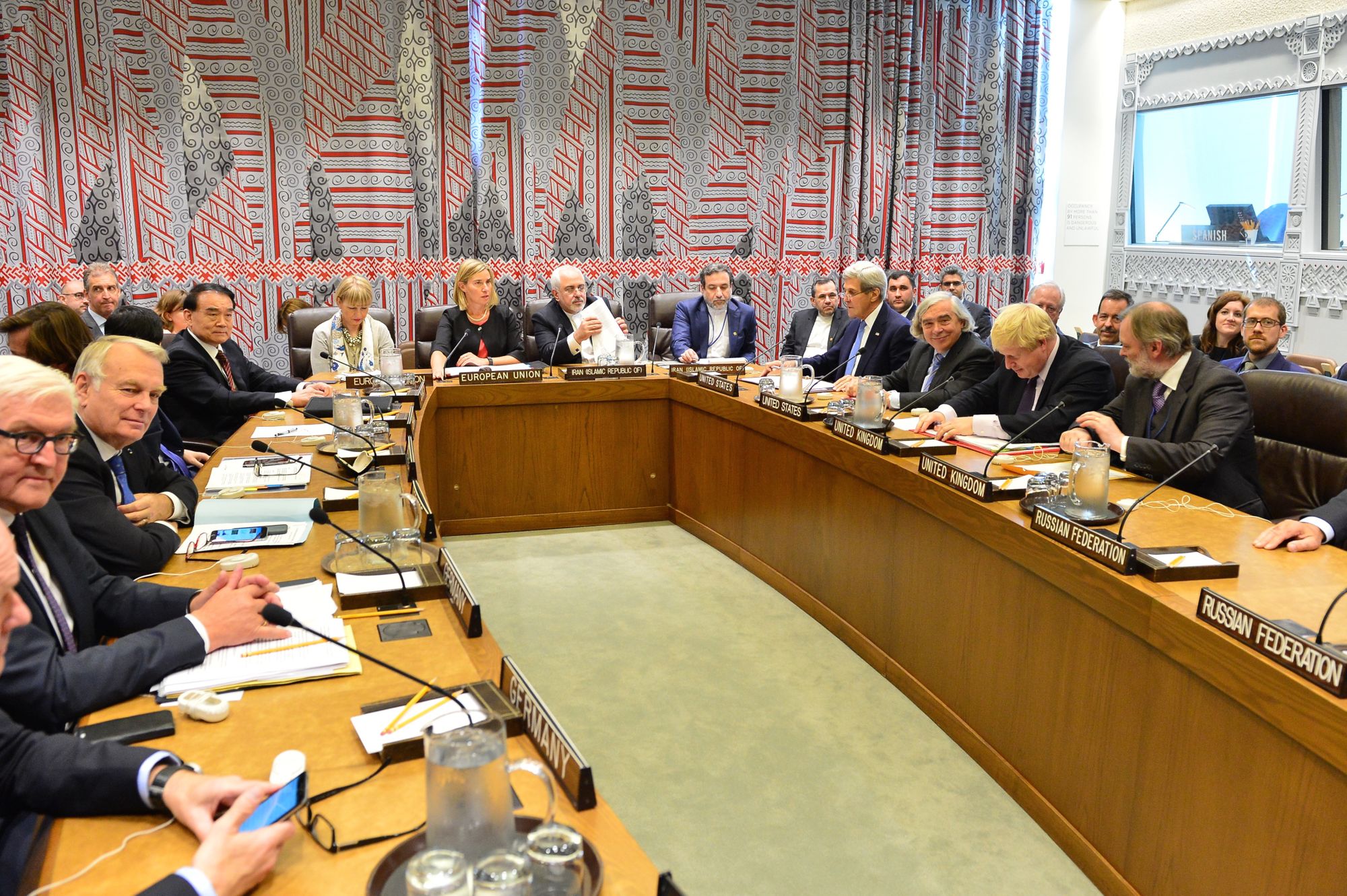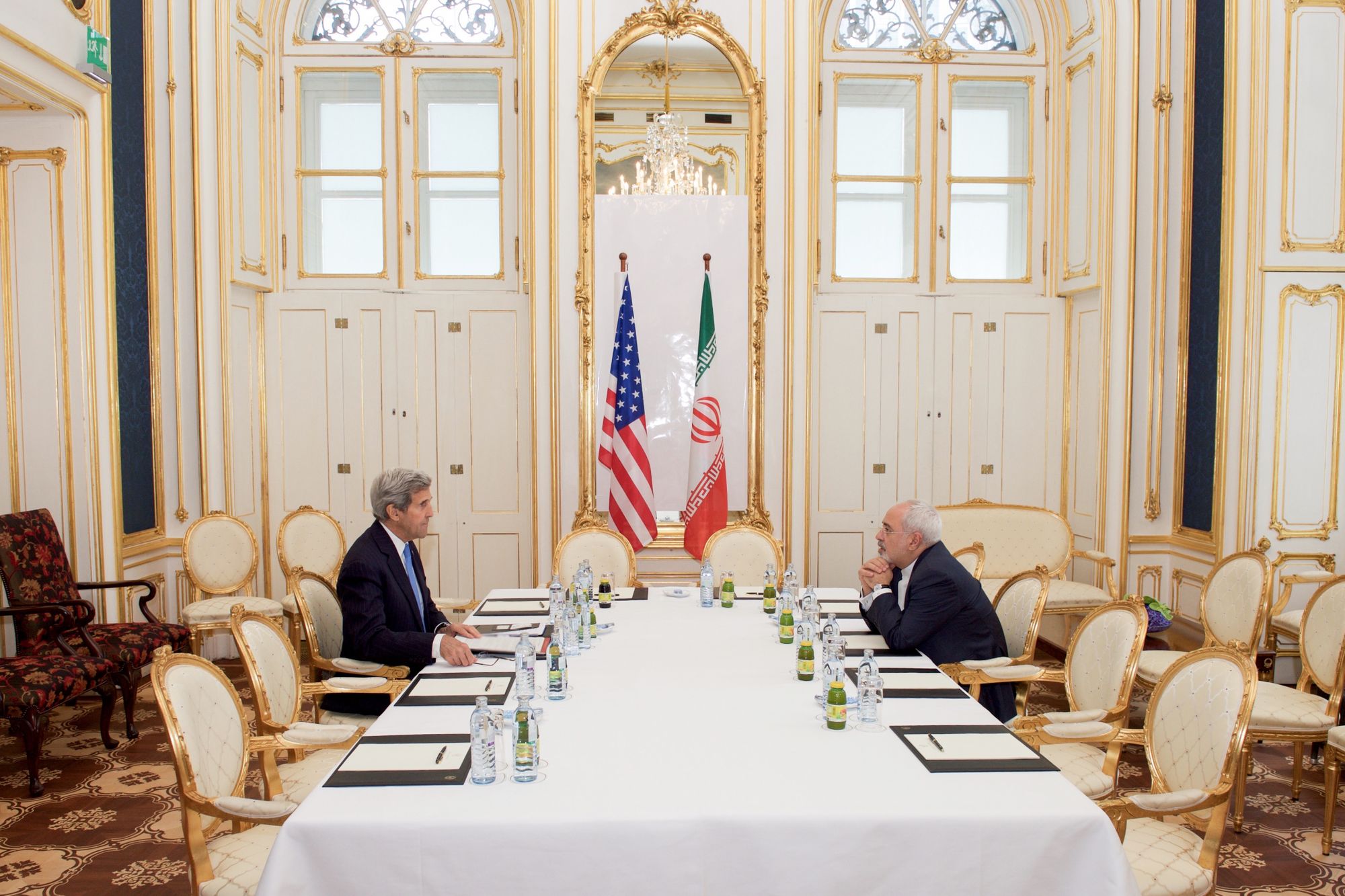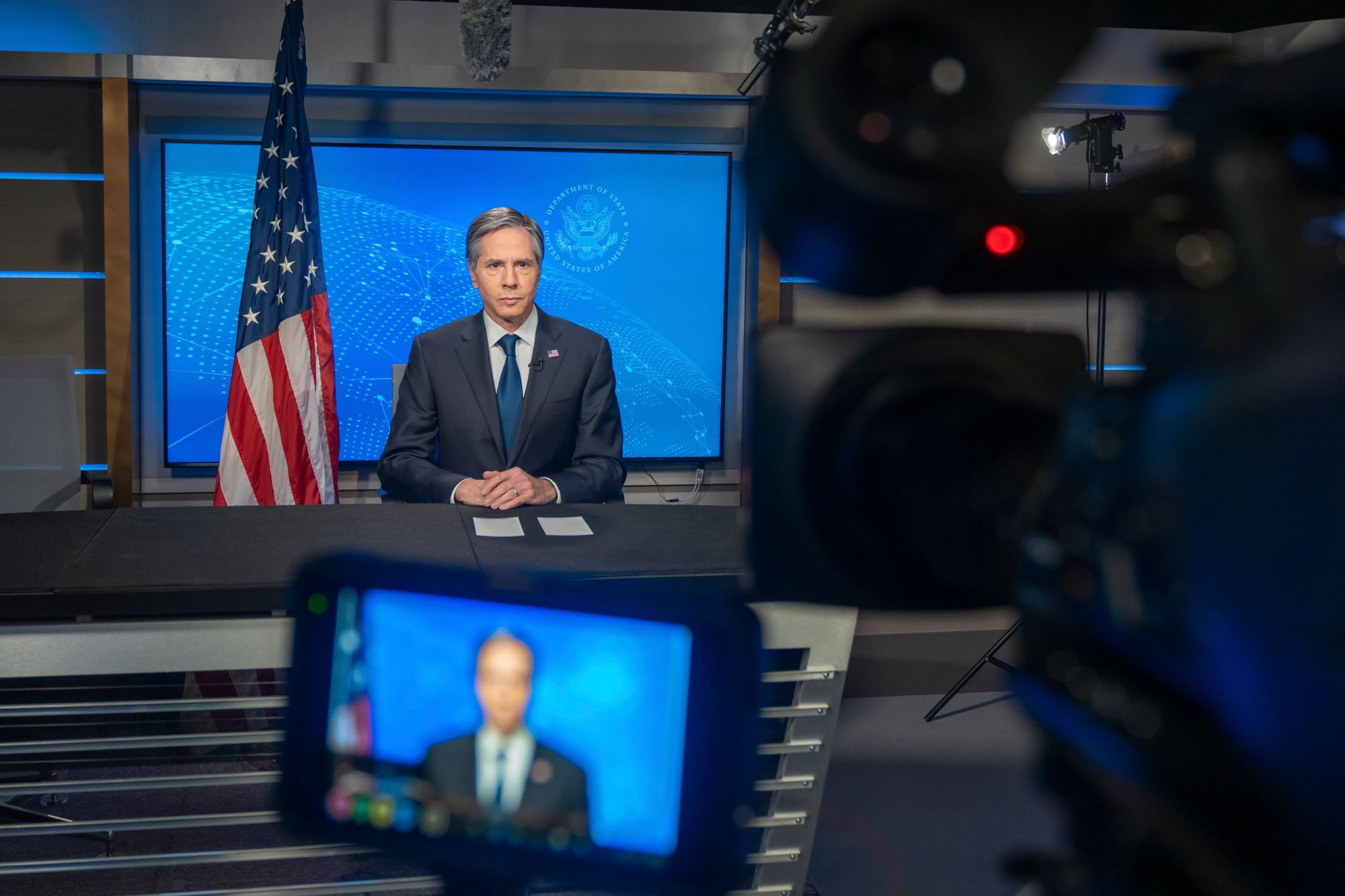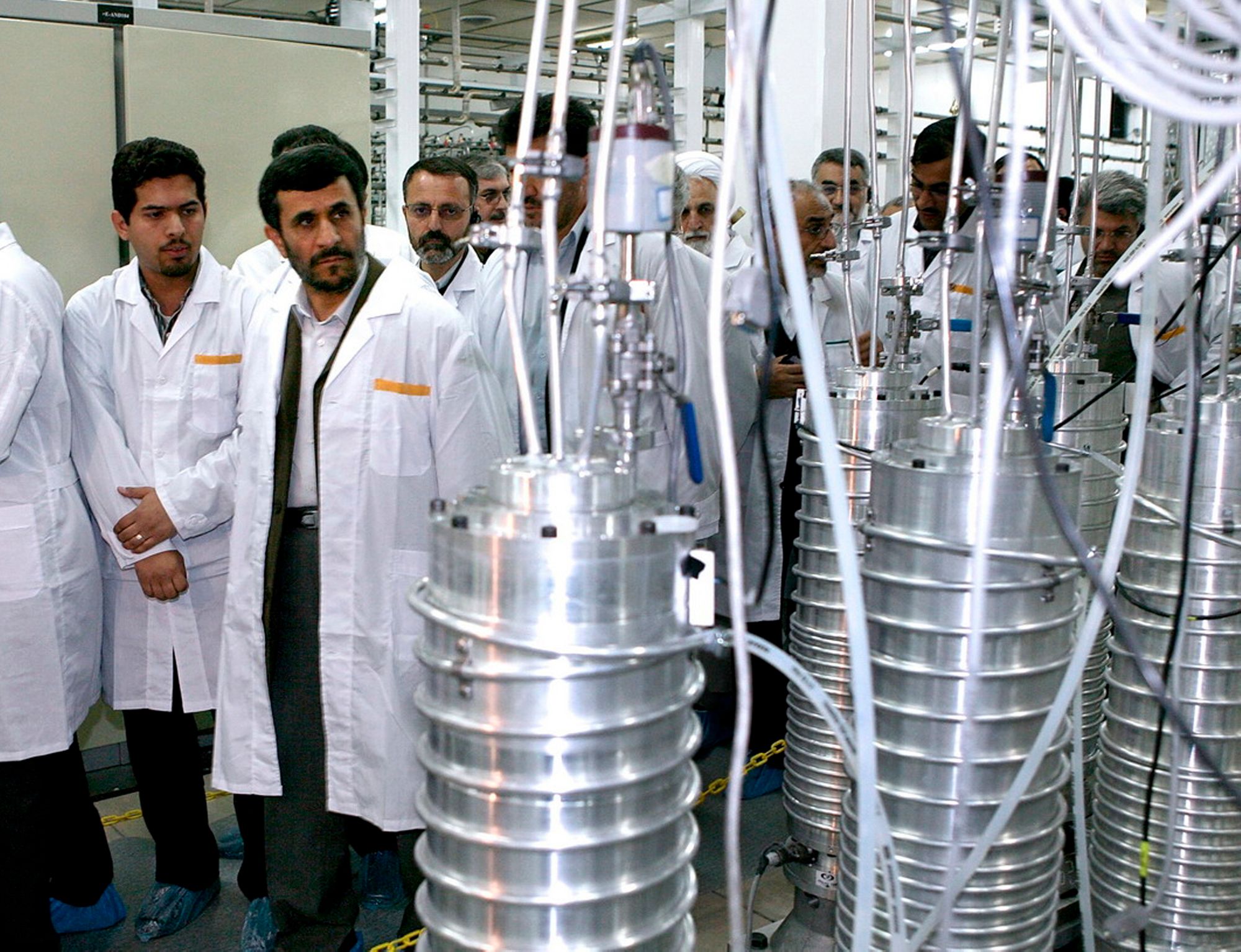Nuclear violence is a terrifying and catastrophic prospect. In the case of Iran, the difficulty of nuclear diplomacy meets the gravity of a potential nuclear threat.
With the beginning of US President Joe Biden’s term of office, global dialogue surrounding Iranian nuclear disengagement has been reinvigorated. However, the international community is having a difficult time agreeing on concrete steps towards a new nuclear agreement.
Many suspect that the United States and Iran are both willing to negotiate a nuclear nonproliferation deal. However, both parties are playing hardball, demanding that the other country make the first move. These two nations have a long history of mutual hostility, but they were able to reach a rare and successful nuclear non-proliferation agreement in 2015. Perhaps the same result is possible again.
The 2015 JCPOA and US-Iran Relations
In 2015, after years of meticulous deliberation, six of the world’s most powerful actors converged on a robust nuclear nonproliferation agreement with Iran. The United States, China, Russia, the United Kingdom, France, Germany, and Iran signed the Joint Comprehensive Plan Of Action (JCPOA), a 159-page document deemed “the strongest non-proliferation agreement ever negotiated” by former US President Barack Obama.

The JCPOA limits the development of Iran’s nuclear program to “exclusively peaceful purposes, consistent with international non-proliferation norms,” reflecting “mutually determined parameters” for all signatory parties. The agreement entails the lifting of all UN Security Council sanctions, multilateral sanctions, and national sanctions related to Iranian nuclear activities in exchange for Iran limiting their nuclear operations to non-weaponized usage, overseen by regular inspections by the International Atomic Energy Agency (IAEA). This agreement had the intent of moving in explicit phases with “gradual evolution, at a reasonable pace,” towards the ultimate goal of fully normalized relations with Iran and the participating world powers.
The United Nations Security Council enshrined the JCPOA into international law with Security Council Resolution 2231, unanimously endorsing the agreement and fully legitimizing it on the world stage. A robust deal agreed upon by the world’s most powerful actors and unanimously approved by the UN Security Council appeared to be a stable fixture in international politics.
However, while the JCPOA is a multilateral, comprehensive agreement between seven parties on paper, it has proven highly contingent on the volatility of the US-Iran relationship. In 2018, former President Donald Trump unilaterally left the JCPOA, calling it “the worst deal ever negotiated.” Directly in response to the United States’s withdrawal, Iran has gradually reduced its commitment to the JCPOA. Since 2019, Iran has been increasing its uranium enrichment beyond the levels allowed by the agreement. While this enrichment is in violation of the JCPOA, Iran views it as a temporary, reversible step for negotiation leverage; Iranian foreign minister Javad Zarif frequently reiterates that all of Iran’s extrajudicial steps are “fully reversible upon full compliance by all.”
Iran’s noncompliance after US withdrawal suggests that the Iranian state views the multilateral JCPOA framework as a de facto bilateral agreement with the United States. Likewise, in late February, the European signatories of the JCPOA proposed informal talks with Iran, but Iran promptly rejected their offer shortly after the US ordered airstrikes in Syria against Iran-backed militias. From Iran’s perspective, nuclear diplomacy without US participation seems worthless.

US Policy Toward Iran since 2018
After unilaterally withdrawing from the JCPOA, the United States adopted a policy of “maximum pressure” beginning in 2018—and continuing to this day. This pressure campaign entails wide-reaching sanctions that have devastating effects on the Iranian people, as well as assassinations of high ranking Iranian officials. Experts estimate that the sanctions have cost Iran about US$200 billion in revenue—mainly from inability to sell oil on international markets—have halved the value of Iranian currency, and are causing the country to lose at least a million jobs each month.
The United States claims that their sanctions exempt necessary medicine and medical devices, which are critical with the COVID-19 pandemic. However, a Human Rights Watch report indicates that most international firms are deterred from doing any business with Iran out of fear of accruing US sanctions on themselves, even for exempted medical transactions. Similarly, the United States recently blocked a US$5 billion emergency loan from the International Monetary Fund to Iran for coronavirus relief.
“We had always said the sanctions are unjust but coronavirus revealed this injustice to the world,” Iranian Foreign Minister Javad Zarif stated, calling the sanctions “economic terrorism.”
This constraining approach was meant to force compliance from the Iranian regime with American expectations, as then Secretary of State Pompeo stated: “things are much worse for the Iranian people [with the US sanctions], and we are convinced that will lead the Iranian people to rise up and change the behavior of the regime.” Former Secretaries of State Tillerson and Pompeo have both openly called for US-led regime change in Iran, positing that the United States can resume diplomatic normalization if the Islamic Republic is replaced by a regime more favorable to the United States.
These confrontational policies and statements of the former Trump administration may seem irrelevant under the new Biden administration, but from Iran’s viewpoint, the United States has not taken any action to materially ease any of these confrontational policies. At the moment, to Iran, Biden’s policies look no different than Trump’s.
The US argues that, “if Iran comes back into strict compliance with its commitments under the JCPOA, the United States will do the same.” US Secretary of State Antony Blinken asserts that "the ball’s in Iran’s court." Iranian President Hassan Rouhani, on the other hand, argues that “as soon as the US lifts its illegal sanctions and returns to law, Iran will immediately return to all its commitments under the deal.” Both parties are nominally willing to return to the JCPOA but stubbornly demanding that the other make the first move.

The Role of Iranian Fear
The Iranian demand for the United States to make the first move likely stems from fear. If the US does not first adopt a less confrontational attitude towards US-Iran negotiations, Iran could give up valuable nuclear defensive assets without any guaranteed benefits in return. According to international relations scholar Stephen Walt, every single US president since Bill Clinton has “either flirted with or openly embraced the goal of ‘regime change’ in Tehran.” For this reason, the short-lived JCPOA was an exception to a confrontational norm of attempting to change the Iranian regime in a US-friendly direction.
When considering nuclear diplomacy, one must consider nuclear weapons as a means to an end. Nuclear warheads serve no intrinsic purpose other than their theoretical capacity to create apocalyptic devastation—unlike most conventional weapons, nuclear arms are not a regular aspect of today’s warfare. A nation with nuclear weapons solidifies their security by threatening grave consequences if a foreign power were so foolish to attack. A country like Iran, which has international rivals much more powerful than itself, is likely to seek a policy of nuclear deterrence in order to secure its safety among powerful geopolitical rivals.
Realist international relations theorists consider the vital importance that nuclear weapons have as means to rational protection. Stephen Walt notes that “if the mighty United States believed its security depended on having a powerful nuclear deterrent, then surely a few weaker and more vulnerable states might come to a similar conclusion.” Walt wonders if US leadership expected “Iran’s leaders to sit idle as the most powerful country in the world prepared to overthrow them?”
With nuclear deals between the United States and Iran, one must consider the relative power (im)balance of its signatories. On the United States’s end, agreements entail placing or lifting sanctions with ease that carry no material, domestic cost to their country or people. On Iran’s end, however, nuclear deals entail withdrawing the capability to build tangible and valuable protective assets that may prevent the toppling of their regime—or suffering the devastating effects of international sanctions. While the United States bears limited material costs in nuclear agreements, dealing with Iran is an inflammatory subject for the American public: 88 percent of Americans hold unfavorable views of Iran, and 72 percent believe that Iran’s development of nuclear weapons is a critical threat to the US. While both countries have meaningful public and strategic stakes in Iran’s nuclear program, the United States’s lack of domestic costs gives it flexibility in its commitment that Iran does not have.
The United States’s commitment flexibility was made apparent by its 2018 unilateral withdrawal. Since 2018, Iran has learned that it needs significant leverage to ensure that any American-driven deal will be more permanent than the JCPOA proved to be. Therefore, Iranian officials are currently tiptoeing around a new nuclear deal, attempting to deepen US guarantees for investment before entering any formal agreement.
It is also vital to consider the geopolitical environment of Iran’s neighborhood. While the United States regularly portrays Iran’s foreign policy as uniquely aggressive or hostile, the reality is that Iran is one of many belligerents acting and reacting to violent developments in the greater Middle East.
Iran and a loose coalition of Saudi Arabia, the United Arab Emirates, and Israel continually vie for influence in the region, fighting proxy wars in states such as Yemen, Syria, and Libya. The Saudi-Emerati-Israeli coalition together spends over US$100 billion per year on military force, while Iran spends only around US$13 billion per year. Additionally, the only state in the Middle East with nuclear weapons is Israel, Iran’s principal foe, meaning that Iran’s regional opponents have a strategic leg up on Iran on virtually all matters of military might and security.
Moreover, Israel abides by a policy of nuclear ambiguity, in which it neither formally admits its ownership of nuclear weapons nor allows international inspections. From Iran’s perspective, why should they abide by strict nuclear rules when they have no idea what’s going on with their main regional adversary’s nuclear program? Why should Iran lay all of its cards on the table if their opponent keeps theirs behind their back? Using the logic of nuclear weapons as deterrence from adversarial threats, if Iran wants to use nuclear weapons as regional deterrence, they can only assume the worst from Israel’s nuclear program.
That being said, while Iran has plenty of reasons to feel threatened, this does not excuse or legitimize Iran’s violence in the Middle East. For the sake of honest nuclear diplomacy, however, the United States must recognize and appropriately account for Iran's national security fears in considerations of nuclear development.
Possible Futures
It is possible that the United States and Iran’s antagonistic stubbornness will result in a failure to reach a settlement on a new nuclear deal. Domestically, both countries have strong opposition to negotiation with the other; the United States’s Republican politicians display strong opposition to rejoining the JCPOA, and Iran’s reformist, somewhat West-friendly President Rouhani’s term is ending in June, suspected to be replaced by a hardliner who opposes entering agreements with the United States.

If the United States and Iran refuse to negotiate with each other, an Iranian nuclear nonproliferation agreement would be more difficult, but not impossible. As mentioned earlier, Iran’s desire for nuclear weapons stems from their fear of both their regional opponents and the United States. To persuade Iran to give up nuclear weapons, Iran must be assured that their regime will be protected from both threats. If the United States and Iran decline to enter agreements with each other, the JCPOA’s European signatories, China, or Russia may be able to negotiate directly with Iran. These powers could perhaps create a mutual agreement with Tehran to provide security assurances from regional and US threats in exchange for abandoning their nuclear weapons program. But such an agreement may anger the United States, which would likely go to great lengths to derail such an effort undertaken without their participation, leading to a deal that lacks international legitimacy.
To avoid questions of international legitimacy, US commitment to a nuclear deal with Iran will greatly increase the chances of successful nonproliferation. Iran has understandable reservations about entering an agreement with the United States without guarantees of their commitment. To engage bilaterally with Iran, the United States should demonstrate commitments beyond just lifting sanctions that they can reinstate with ease—possibly in the form of concretely fixed diplomatic recognition and sanctions relief, or mutual threat reduction by disengaging from Iran’s opponents in the Middle East. Iran would also be more willing to engage with the United States if the United States and its allies stopped continually insisting that Iran is about to collapse and instead engaged with the reality that the Islamic Republic is here to stay as an actor in international affairs. For Iran’s part, they must realize that the most sustainable path for their long term protection is through mutual threat reduction, not through mutual threat enhancement by way of nuclear weapons.
Either of these two routes for Iranian nuclear disengagement—with or without the United States’s participation—will require ongoing, honest, multilateral negotiations with long time horizons. The international community faces a complex and uphill battle for nonproliferation, but the presence of more nuclear weapons in the world is in nobody’s interest; all powers should converge on the greater goal of a calmer climate, rather than a more turbulent one on the international stage.





